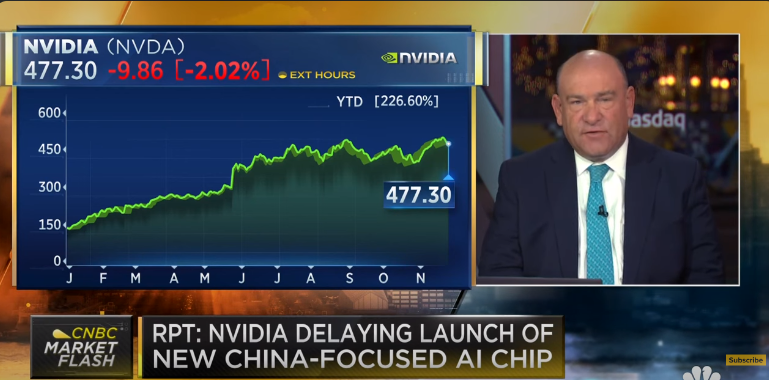
The technological landscape is facing a significant shift as Nvidia grapples with new US export regulations while attempting to satisfy the Chinese demand for advanced AI chips.
The Tightrope of US Export Regulations
Nvidia’s Strategy Amidst Constraints
In response to stringent US rules, Nvidia has been attempting to navigate a complex market by designing chips that meet the compliance standards without sacrificing too much performance. The challenges with this strategy are evident, as recounted by the Wall Street Journal, highlighting the reluctance of Chinese customers to accept downgraded chips.
Impact on AI Chip Development
With a focus on delivering compliant yet capable products, Nvidia’s reconfiguration of its processors is inadvertently promoting local alternatives in China, thereby affecting the international semiconductor landscape and the continued growth of the semiconductor industry in China.
The Geopolitical Role of Technology
Navigating the Chip Manufacturing Market
The ever-evolving geopolitics of technological advancements put companies in a tough spot — innovate rapidly but remain inside boundaries set by international regulations. As Nvidia works on conforming to the US export controls, insights from The Wall Street Journal’s post indicate the broader impact on Nvidia’s Chinese buyers.
Emerging Local Competition
The changing landscape of the semiconductor market is not isolated to global giants but involves intense development within China, with companies like Huawei reportedly making strides with their 5nm chip. The Chinese semiconductor market and AI chip development are rapidly transforming, challenging established players like Nvidia.
China’s Response and Industry Shift
The Shift to Homegrown Semiconductors
As a result of downgrading processors, demand has risen for China-made chips, and the balance of power is shifting. Chinese companies are seeking alternatives and are focused more than ever on the development of a self-reliant China-focused AI chip industry.
Advancements in Artificial Intelligence Accelerators
AI technology is accelerating globally, yet export-compliant GPUs and accelerators are now under the spotlight. Companies like Intel are finding new approaches to win in the AI market amidst these changes.
Frequently Asked Questions
Q: How are US export controls affecting Nvidia’s business in China?
A: US export controls have forced Nvidia to redesign their chips to meet the new regulations, leading to Chinese companies exploring alternative sources for AI chips and increasing the likelihood of Nvidia facing lost sales in China.
Q: Are there any Chinese alternatives to Nvidia’s AI chips?
A: Yes, companies like Huawei and others within the Chinese semiconductor market are developing and producing AI chips that could potentially compete with Nvidia’s offerings.
Q: What might the future hold for Nvidia in the Chinese market?
A: It’s uncertain. Nvidia must balance compliance with US regulations against the needs of their Chinese customers. They may find it increasingly challenging to maintain their market share in China due to local competition and changing demands.
Comments
Post a Comment